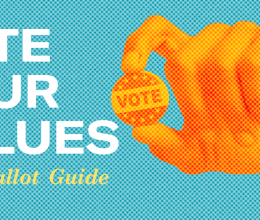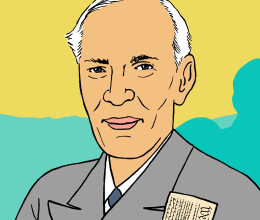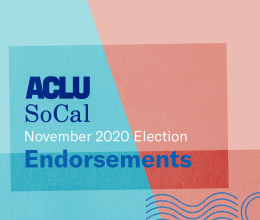LOS ANGELES - In a ringing endorsement of free speech, a federal court judge today made clear that he would issue a preliminary injunction enjoining enforcement of Los Angeles Municipal Code �_ 80.75, which prohibits placing "For Sale" signs in cars parked on Los Angeles city streets. The ruling came in a case brought by the ACLU of Southern California in June 2000 on behalf of Edward Burkow, a man who was fined by the City of Los Angeles in September of 1999 for placing a "For Sale" sign in his white Volkswagen while it was parked on a city street.
"Every Southern Californian knows that automobiles are also vehicles of self-expression," said Peter Eliasberg, staff attorney at the ACLU of Southern California. "We use our cars as platforms to pitch our web-sites and herbal formulas, to argue about whales and fetuses, to joke with each other, to promote our acting careers, to advertize our tastes in music, fast food, politicians, deities, and sexual partners -- in short, to engage in virtually every kind of conversation that can be imagined, from the inane to the profound. The city's ill-conceived scheme to regulate one aspect of this vehicular open forum has been dealt a blow today."
Geoff Thomas, of Paul Hastings, Janofsky & Walker LLP, pro bono co-counsel in the case, emphasized that today's preliminary injunction was a victory for individuals' rights to engage in commercial free speech.
"While it's true that different standards apply to commercial speech, the Constitution protects individuals' commercial as well as other speech rights," said Thomas. "Too often, regulation of commercial speech means that only those with the resources to challenge a restriction are truly free. That's why it's so critical to stand up for individuals' rights to exercise commercial speech freely."
Judge A. Howard Matz rejected the city's justifications of the law, which included traffic safety and aesthetic concerns.
"Under L.A.M.C. .フ_ 80.75," wrote Judge Matz, "commercial advertisements on cars could offer anything for sale, such as ads depicting jewelry, drugs, or sexually explicit magazines, except the car on which the sign is mounted."
"The court," wrote Judge Matz, "cannot fathom how a sign in a parked car is more dangerous than the same sign in a moving car."
"As to the indisputably important 'aesthetic' concerns," wrote Judge Matz, "Defendant could minimize alleged harms with measures far short of outright prohibition."
Since filing the lawsuit on June 1, 2000, the ACLU has received numerous of calls from throughout the Los Angeles region from individuals who have been fined for putting "For Sale" signs in their cars.
"This ruling is a red flag to all the cities in the region that enforce these 'For Sale' sign bans," said Michael Small, Chief Counsel at the ACLU of Southern California. "If you don't a want a losing battle on your hands, you better take get these ordinances off the books."




